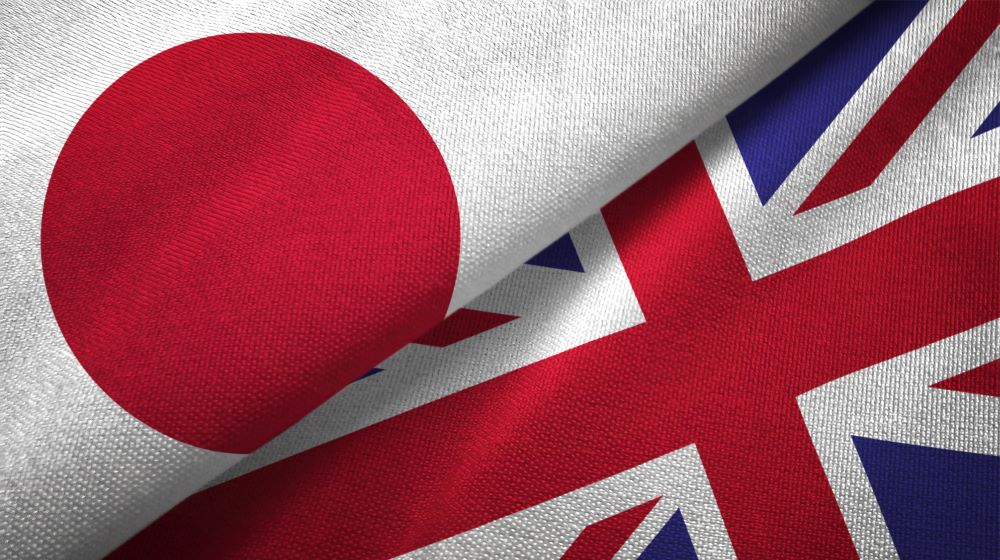While the deadline to strike a quick and easy deal with Japan slips away due to a disagreement over Stilton, PWB explores how this seemingly small issue could undermine the entire deal, write Emily Stewart and John Howarth.
The Trade Secretary, Liz Truss, has been courting the world’s governments seeking the trade deals that will come to define the UK’s post-Brexit future as ‘global Britain’. An early success in this plan was to be a quickie deal with Japan. This would potentially lead on to the UK becoming a party to something called the Comprehensive and Progressive Agreement for Trans-Pacific Partnership (CPTTP). The ‘Pacific’ part of which refers to the British Pacific territory of the Pitcairn Islands, which with 50 permanent residents apparently provides sufficient rationale for the UK being a ‘Pacific nation’. Although the initial deadline of the end of July has passed, the UK may yet conclude a trade arrangement with Japan before the end of 2020.
With twice the population of the UK, and GDP of $5.1 trillion it is more economically significant than Canada ($1.7 tn), Australia ($1.3 tn) or New Zealand ($204 bn) put together. Japan is the third largest economy in the world after the USA and China, the fourth if the EU is considered a single economy. In those terms, if you are going to do trade deals at all, then a trade deal with Japan should be worth doing.
Trade between the UK and Japan was worth £29 billion in 2018. The UK, while a member state of the EU, has been highly successful at attracting Japanese investment, even before the conclusion of the 2018 EU-Japan Economic Partnership Agreement, the biggest bi-lateral trade deal of them all, which came into force in January 2019 is known. Now things have changed. The UK is no longer an EU member state and without some kind of agreement, the trade arrangements with Japan of which the UK is part of until 31 December will no longer apply.
In practice, this may not mean much materially. Should a deal not happen, it will not mean that the UK will fail to do any business with Japan. Nor does it mean that if a deal is forthcoming, that the UK will see immediate benefits. The UK Government estimates the benefits of a trade agreement with Japan as a potential additional £15.2 billion – around an additional 0.7% of GDP over the medium term. This is in line with the projections made by the EU Commission of the potential benefits of the 2018 EU-Japan agreement, but does not take into account a current retraction of the Japanese economy. Currently, Japan accounts for around 2% of the UK’s exports – less than a third of what we sell to the Netherlands, only a little more than a third that we sell to Ireland and a mere fifth of the goods we sell to Germany.
However, the UK is a smaller but important market within that which Japan would like to retain access to with as little disruption as possible. It seemed like the first step was to roll over existing trade arrangements – in line with what appeared to be the policy of the UK Government for some time.
Both sides bank an easy win and common sense prevails?
Unfortunately it seems that the plan to simply roll over deals has gone astray. In the ideological belief that any trade agreements done by the EU must be bad because the EU did them, the British stance has been to overturn elements of the existing 2018 agreement, resulting in new issues on the negotiating table. One such ideologically shaped issue is that of cheese, in this case Stilton. Selling more cheese and getting better tariffs than our European neighbours has been set as one of the barometers of a ‘better deal’.
But the potential benefits to the cheese market of a rolled-over trade deal with Japan are modest, and the scale of Stilton exports supremely irrelevant. The UK currently exports £102 million worth of Stilton to Japan, which works out less than 100 grams per person per year. So while the issue itself is a red herring, it does serve to show how trade talks can be torpedoed by the most mundane of things.
And so Ms Truss finds herself between a rock and a hard place. She either backtracks to conclude the ‘easy deal’ with the potential partner ‘most committed to free trade’ on the basis of what is possible and least disruptive, or she holds out for a ‘better deal’ and quite possibly ends up with nothing. Nonetheless the choice of Stilton is an odd hill to die on considering the potential to concentrate on securing ‘commitments’ and ‘declarations’ on things like financial services or digital economy – which are actually useful to the UK economy – and can then be dressed up as a ‘better deal’ that the EU-Japan EPA.
Meanwhile, back on Pitcairn …
The trouble with trade agreements is they have knock on consequences. Bi-lateral deals are all very well, but they are not the only relationships. One form called ‘most favoured nation status’ means essentially that you can’t offer better terms to another partner without offering the same terms to the partner with whom there is a ‘most favoured’ clause in the agreement.
Thus, were Japan to offer better terms to the UK on services and investment than is in their deal with the EU, then they must then offer that to the EU. The best way UK negotiators can do a ‘better deal’ with Japan therefore, is to find things that are outside the scope of the EU-Japan EPA. Cheese was not a good choice.
Triangular relationships are also important to the Japanese because their companies have used the UK as a stepping-stone to the EU market and as the headquarters for many Japanese companies trading in the EU. It is worth saying that the Japanese position is predicated on the UK securing a deal with the EU, after all that’s what the UK Government always said it wanted and therefore a no deal Brexit is likely seriously to undermine the worth of a quick deal.
Meanwhile back in the Pitcairn Islands the UK seeks to position itself as a potential business hub for nations interested in trading with the rest of the world. Thus, through the CPTTP, the UK Government seems to believe it will become the first port of call for the Pacific rim nations and a “gateway to Europe”- a position which does run into some difficulties in the face of a limited, or no deal.
This article is an update of a blog by John Howarth written in August 2020 for his personal site.

